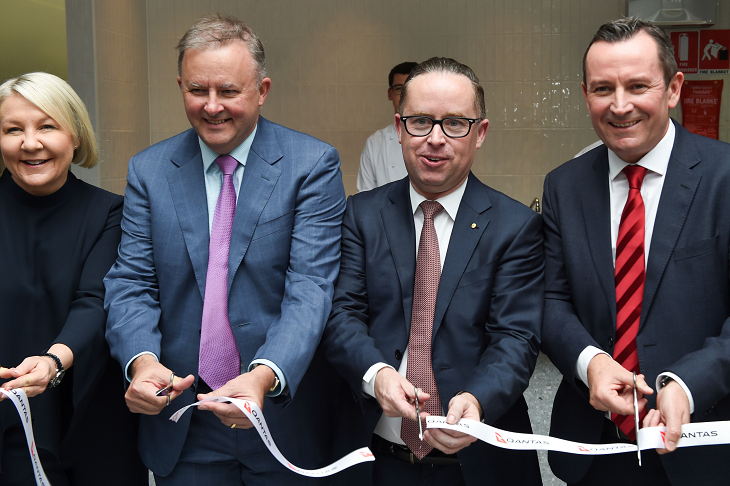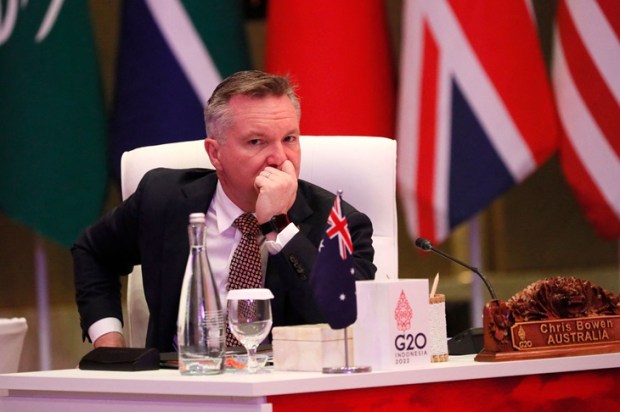The contrast between the ALP’s most successful government – the Hawke-Keating government – and that of Mr Albanese is easily recognisable. By and large, Hawke led a party that had transformed itself from the wreckage of the previous Whitlam government’s dalliance with extreme socialistic policies. Mr Albanese leads a government that is a reversion to the Whitlam policies cloaked in more modern green-imbued garb.
The government led by Bob Hawke set about to differentiate itself, not only from the socialism of Whitlam, but from a Liberal/National Coalition that had not deviated from a path involving government increasingly constraining business operations.
Labor deregulated the economy. This included a massive reduction in tariffs, especially those on vehicles and clothing, that had grown like Topsy in the post-1945 era. It also freed up interest rates and opened to competition the finance, air travel and many other sectors. Part of this involved bribing state governments to relax their controls, for example in electricity supply and road transport and in their parochial purchasing arrangements.
As a bit player in the Hawke government, Mr Albanese may have been uncomfortable with these policy developments. He might have been more at ease with those Hawke government measures that brought a step-up in welfare payments and he may have applauded the early kowtowing to the green movement with measures that prevented the Tasmanian government increasing its hydro-electricity supply and aborted the construction of a massive Tasmanian paper mill. He would certainly have applauded the attempts at indicative planning, like those of industry Minister Button involving coordinating the motor industry’s structure of production.
The Albanese government’s focus has been on nudging the economy in the direction it favours. It has a three-pronged strategy of:
- developing labour laws designed to fit a worker-employer relationship that prevailed 50 years ago with a 35-hour working week and job-for-life approach, rather than one with the flexibility and customer orientation required in a modern economy;
- erecting barriers to any developments that green activists might perceive as inimical to their environmental preferences (green-lighting anything involving wind and solar but enmeshing in red tape proposals involving coal and gas); this also involves forms of re-wilding, including reducing the use of natural resources (water, farmland, fishing grounds);
- designating the areas where investment should proceed, especially in energy, with increased encouragement (aka subsidies) of renewables.
The first strategy sacrifices economic prosperity for the support of a union movement struggling to remain relevant by harnessing immense financial and electoral support resources.
The second strategy is a rational, if destructive, sacrificing of prosperity for the ‘greater good’ of forestalling an outflanking from green opponents.
The third strategy adopts the hubris of those who see themselves as best able to determine where investment should be directed because they have a ‘holistic’ perspective as well as superior analytical skills. It is impossible to find an example anywhere of this being successful. Certainly, such plans where they have been pursued in Australia over the past 70 years have only wasted resources. And the contemporary attempts by Ministers to jump-start a green hydrogen industry will surely be condemned to the same graveyard hosting earlier fundings of turbine blade and solar panel industries.
Among the reasons why this will always be the case is that the dispersed knowledge of the decentralised market will always outperform the central planner. In addition, politicians are not trained to take such leadership roles (though some business people successfully transition to politics).
Politicians need to cultivate consensual actions and ensuring adverse outcomes from arbitrary decisions will entail limited damage, if things go wrong. But limiting damage from arbitrary decisions is difficult beyond the political hustle and bustle. Thus, Tanya Plibersek may have been jubilant about bringing home a trifecta in rejecting a Queensland mine that burnished her credentials as anti-coal, pandered to scientific hysteria about damage to the Great Barrier Reef and imposed costs on Clive Palmer, a loathed political enemy. But such actions are anathema to the laws of good government; they are akin to decisions taken in autocracies like Russia and greatly increase the economy-wide costs of doing business.
Even greater amateurism was evident in Minister Catherine King’s performance in the Qantas/Qatar debacle. A simple formality of granting additional flights to Qatar, turned out to be a quagmire. The rejection of Qatar’s application for more flights was not, apparently, made over a single cause but Ms King did admit that Australian women who were subjected to intimate bodily searches at Doha airport back in 2020 had given a level of context for her rejection of the proposal.
Ms King’s inaction is symptomatic of an incomprehension on the part of many politicians of the interactions and expenses incurred in developing a particular strategy. It was not simply a matter that Qatar Airways would be discomfited – though that was certainly the case – but a host of other arrangements, including with Virgin, were overturned.
Albeit imperfectly, the Hawke-Keating government set policy agendas based on stripping back political interventions and making government responses more predictable for private sector decision makers. The Albanese government wants to be the lightning rod directing the future structure of the economy so that it is largely based on renewable energy and makes a far reduced use of Australia’s massive resources. A damaging outcome is certain but will be aggravated by ministerial inexperience of business realities.
Got something to add? Join the discussion and comment below.
Get 10 issues for just $10
Subscribe to The Spectator Australia today for the next 10 magazine issues, plus full online access, for just $10.


























Comments
Don't miss out
Join the conversation with other Spectator Australia readers. Subscribe to leave a comment.
SUBSCRIBEAlready a subscriber? Log in